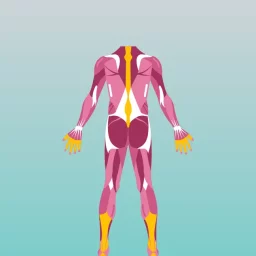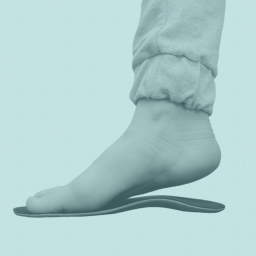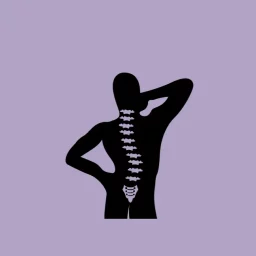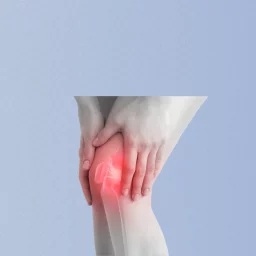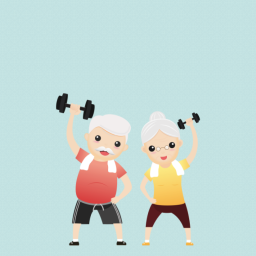What is Mindfulness?
Mindfulness, a practice with roots dating back to ancient Eastern traditions, has gained immense popularity in recent years. Today, it’s embraced across the globe as a means of achieving mental clarity, emotional balance, and overall well-being. This practice encourages us to stay present, and fully aware of the moment, and it offers numerous health benefits. As we delve into the world of mindfulness, let’s explore its connection to musculoskeletal (MSK) health and how incorporating mindfulness can alleviate muscle tension and reduce MSK pain such as neck and back pain.
The Link Between Stress, Muscle Tension, and MSK Pain
Modern life often bombards us with stressors, from work deadlines to personal responsibilities. The physical response to stress is the activation of the “fight or flight” mode, which can lead to muscle tension. This tension, if chronic, contributes to MSK pain. Research has shown that prolonged stress can lead to conditions like tension headaches, neck pain, and lower back pain, all of which affect our musculoskeletal system.
Mindfulness for MSK Health
Mindfulness, through practices like meditation, deep breathing, and body scans, can be a powerful tool for managing stress and its physical manifestations. Here are some tips to incorporate mindfulness into your daily life:
Morning Reflexion:
Start your day with a short meditation session. Focus on your breath for 30 seconds to a minute and clear your mind for a calm start.
Mindful Breathing:
Take a few moments throughout the day to engage in mindful breathing. Deep breaths through belly inhales can relax tense muscles and reduce stress.
Mindful Movement:
Yoga or tai chi combines physical activity with mindfulness, promoting flexibility and reducing MSK pain. Start with a few gentle poses for 5-10 minutes per day.
Digital Break:
Limit screen time and engage with the world around you. Mindfulness involves fully experiencing the present moment, free from distractions.
Mindful Eating:
Pay attention to what you eat, savour each bite, and listen to your body’s hunger cues. Try not to label foods as “good” or “bad”. Listening to your body’s hunger helps promote better digestion and build good relationships with food.
Incorporating mindfulness into your daily routine
Incorporating mindfulness into your daily routine can significantly improve your musculoskeletal health. By reducing stress and muscle tension, mindfulness helps alleviate MSK pain. However, it’s important to remember that while mindfulness is a powerful tool, it’s not a one-size-fits-all solution. For those dealing with chronic MSK issues, seeking professional help, such as manual therapy from your team at CURAVITA of chiropractors, physiotherapists, and massage therapists can be beneficial.
Manual therapy can help you feel your best by addressing specific MSK concerns. This may involve a combination of techniques, including targeted exercises and breathing techniques, to promote muscle relaxation and alleviate pain. By combining the mindful practice of being in tune with your body and professional guidance, you can pave the way for improved musculoskeletal health and a more pain-free, fulfilling life.
Visit us online to book your assessment today with one of our healthcare professionals at our CURAVITA Byward clinic or our CURAVITA Glebe clinic.

⭐️⭐️⭐️⭐️⭐️ on GOOGLE
My experience with this clinic has been exceptional. They have been careful, thorough, knowledgeable, extremely professional, very aware and sensitive to my condition, and engaged with concern for my well being and as a valued person beyond just a client. I had a very debilitating pinched nerve between two vertebrae in my lower back that she was able to relieve almost instantly – and then guide me through a treatment process that has left me feeling free-er, looser and more mobile than even previous to the condition showing up. I would highly, and have highly recommended them to others. I am so pleased to have them in my corner.
-RS

⭐️⭐️⭐️⭐️⭐️ on GOOGLE
After years of back pain and not knowing what was wrong i stumbled across this clinic based on their amazing reviews. After the first visit I was so impressed with how knowledgeable and thorough their treatment plan and action was. They are amazing, kind, professional and I am beyond grateful to have found them. My back pain is going away and I am able to run after years of not running because of shin splints caused by my back. Massages and Physio never worked but after 3 sessions with the doctor, I was already feeling so much better. Will be recommending them to anyone and everyone. Very thankful to have found who cares about my back issues like it’s their own.
-LW

⭐️⭐️⭐️⭐️⭐️ on GOOGLE
This doctor is an AMAZING Chiro! They are very thorough in their initial assessment and makes sure everything is clear. They are an incredibly kind, professional, and knowledgeable chiropractor – I’d definitely recommend! They do great adjustments and is always on time or even a bit early. The clinic itself is clean and modern, the receptionists are friendly and there is quite a bit of appointment availability. So far I’m really happy with this clinic!
-JB

⭐️⭐️⭐️⭐️⭐️ +1 on Google Reviews
From the front desk staff to the chiropractor experts, CURAVITA is 6 Star quality!
Being a first-year university student with a long history of neck and head pain and constant headaches, I was skeptical if any treatment would work in restoring a pain-free self. Dr. H and the rest of the staff took the time to know me and the problems I am facing. They set out a clear, measurable and results-based pathway to getting myself back into great health. They provided help and information beyond the appointments that would assist in my goals and overall health.
The staff are friendly, approachable and understanding. Dr. H is an outstanding Chiropractor who always puts the patient and their journey first. Simply put, CURAVITA offers the very best in this industry.
-AC

⭐️⭐️⭐️⭐️⭐️ on Goggle Reviews
We stumbled across Curavita while looking for massage and chiropractor places in Lowertown area. We’ve been very happy with Dr H’s chiropractic services. She diagnosed my knee pain and gave me a fantastic care plan. She’s also very knowledgeable about the city and gives great tidbits and recommendations.
Curavita has a handy online portal to book subsequent appointments. They are quick to respond over email or phone in case any changes to upcoming appointments are required. They also support sending receipts via email which makes the reimbursement process a breeze. I would definitely recommend Curavita!
-C

⭐️⭐️⭐️⭐️⭐️ on Google Reviews
The chiropractic and massage therapy I have received at the CURAVITA has helped me immensely with different health issues as they have arisen. The staff is warm and attentive, the atmosphere is inviting and healing, and the care is effective and comprehensive. The clinic goes above and beyond to explain the types of care they provide through educative media and by therapists themselves. You are in good hands when you are at the CURAVITA Byward.
-SY

⭐️⭐️⭐️⭐️⭐️ on Google Reviews
Dr. B is the absolute best chiropractor! After multiple concussions and dealing with persistent back pain and headaches, I began seeing Dr. B. The chiropractic treatment I have received from Dr. B has made a life-changing difference for me. I highly recommend them and the clinic to anyone! Front desk administrators are also fantastic and friendly, especially Valerie & Mariana, they always make booking seamless and are quick to respond to all my questions and concerns!
-SL

⭐️⭐️⭐️⭐️⭐️ on GOOGLE
Dr. H is so attentive and generous with her time and knowledge. My pain and mobility improved considerably in a short time. My family now all see her too. Highly recommend!
-ES

⭐️⭐️⭐️⭐️⭐️ on GOOGLE
I’ve had both physiotherapy and chiropractic care here.
SA is an incredible physiotherapist. I sprained my ankle pretty bad, and decided to get physio. SA worked with me to initially get my flexibility back and then worked on strengthening exercises. I was back to playing sports in no time. She is very knowledgeable and takes her time to ensure you understand the exercises. I highly recommend her for physiotherapy.
Dr. H is exceptionally proficient in chiropractic care. They are entirely focused on the wellbeing and improvement of each patient. I look forward to every appointment. If you are looking for someone that understands the discomfort or pain you may be feeling and has the knowledge and experience to assist you, look no further.
Do yourself a favour and visit Curavita. Dr. H, SA and staff are truly wonderful. Thank you for all your hard work and effort!
-TM

⭐️⭐️⭐️⭐️⭐️ on GOOGLE
Awesome place! I had pain in my hip and neck and saw the great reviews on Google. Never did physio before so decided to give it a try. I worked with Dr. R and she was amazing. Took great care of me and was very thorough as a chiropractor. I highly recommend her for any issues you may have with back, neck or hip pain. Thanks so much Dr. R.
-CT

⭐️⭐️⭐️⭐️⭐️ on GOOGLE
“I’ve been a patient of Dr. B’s for many years, and even after relocating, I couldn’t find a chiropractor who matched her level of expertise. So, I travel back to Ottawa just to continue receiving Dr. B’s exceptional service.”
-PA

⭐️⭐️⭐️⭐️⭐️ on GOOGLE
“Outstanding results treating my shoulder. My shoulder had been extremely painful for several months and I had been anticipating surgery would be required. My chiropractic treatments got the shoulder moving and am now close to 100 percent recovered. It took time but am extremely satisfied with the outcome.”
-JB

⭐️⭐️⭐️⭐️⭐️ on GOOGLE
The physiotherapist is a great physiotherapist! I have been working with her with my left arm pain and in just a short period of time the pain was gone. She is knowledgeable, kind, caring and professional while still keeping a friendly and comfortable environment. The location is convenient and the appointment times fit my schedule. Excellent experience and would have no hesitation in recommending SA to my family and friends if they ever require physiotherapy. Thank you again for your help, advice and support.
-BB

⭐️⭐️⭐️⭐️⭐️ on GOOGLE
I’ve been a casual massage therapy client at CURAVITA for a few years but recently visited the Glebe clinic for help with a chronic plantar fasciitis problem. I received treatment from the physiotherapist and the chiropractor, and have seen so much improvement and pain relief through these treatments. I am now able to walk pain-free, am beginning to scale up my workouts at the gym so that I can get back to the volume of exercise I am used to and, in general, because of the chiropractic care have noticed huge improvements in how my body feels overall.
-CW

⭐️⭐️⭐️⭐️⭐️ on GOOGLE
I’ve been getting massages with the massage therapist for a few weeks and WOW. She really listens to me, my body, and adjusts her approach and offers advice. She answers all my questions and keeps a calm, relaxing atmosphere. It’s been a tough and stressful time for me and I truly appreciate her and her work. Thank you!
-RE

⭐️⭐️⭐️⭐️⭐️ on GOOGLE
I have had nothing but good experiences at Curavita. The team is professional, attentive, and caring, starting with the receptionists, all well trained. The physiotherapist is a gem. Being used to US physical therapy, I was pleasantly surprised with how my sessions went: instead of focusing on the exercises that she had given me, this was no more than a couple of questions: have you done them? Where was the pain? Where did you have trouble? She then adjusted my “homework” and proceeded with massage, ultrasounds or whatever hands on treatment I needed to release the pain and get me ready for my week. The facilities are clean and pleasant.
-CD

⭐️⭐️⭐️⭐️⭐️ on GOOGLE
I went for the first time for physio to help heal a mild fracture, and I’m glad I chose Curavita. The physiotherapist successfully helped me improve the range of motion of my arm and reduce the pain. She treated me, and I did all the exercises as prescribed, and I quickly regained normal usage of my arm. She is also very nice and friendly. The front desk is also very welcoming and professional. They also offer other services, like chiro and massage therapy, which I will probably try. Plus it is steps away from where I live in the Byward market.
Thank you!
-SHA

⭐️⭐️⭐️⭐️⭐️ on GOOGLE
My toe pain was much reduced in quite a short period of time thanks to the physiotherapist, a superb physical therapist. She clarified what the issue was, let me know how the procedure would operate, and made sure I understood the exercises I needed to perform at home. She listens well and communicates clearly. I’ll keep using her services and would definitely suggest her!
-JC

⭐️⭐️⭐️⭐️⭐️ on GOOGLE
The physiotherapist worked with Krista and me separately on a few minor ailments (neck, quads and tight arm tendons) She is beyond great and has helped both of us to recover quickly. She is great at her bedside manner as well. 🙂
-JG

⭐️⭐️⭐️⭐️⭐️ on GOOGLE
I consulted the physiotherapist for tendonitis in both wrists. After a month, I saw a clear improvement. The physiotherapist listens and is very professional.
Moreover, the clinic easily accommodâtes the patients. I recommend
-LA

⭐️⭐️⭐️⭐️⭐️ on GOOGLE
The physiotherapist is an outstanding physiotherapist who reduced the pain in my hip and knee in a very short time. She explained what my problem was, informed me of how the process would work and ensured I knew the exercises I was to do at home. She communicates well and is a very good listener. I will continue to avail myself of her services and highly recommend her!
-JS

⭐️⭐️⭐️⭐️⭐️ on GOOGLE
Really good service!
Came in with knee pain, my physio was very knowledgeable. Treatment was great. Home exercises were easy to do and effective.
-CP

⭐️⭐️⭐️⭐️⭐️ on GOOGLE
I found Curavita Byward after searching for physiotherapy providers in lowertown, and im so glad i did! I was also very fortunate to be assigned with my physiotherapist and the progress has been visible very fast and she’s very encouraging and knowledgeable and kind. I also started seeing the chiropractor for chiro after a recommendation of the physiotherapist and overall im very satisfied with the treatement plan, the adjustments show effect almost immediately and im happy with the approach in general. 5/5
-DL

⭐️⭐️⭐️⭐️⭐️ on GOOGLE
I went to Curavita for knee issues, and was attended to by the physiotherapist. She is a miracle maker. She was very clear and articulate about how the treatment plan will proceed, and how I am also supposed to contribute to the treatment by doing my part of exercises. She planned 4 sessions in addition to the assessment. By the 4th session, also with keeping up with my exercises, I was good to go!
The place overall is good. They are flexible, accommodating and have reasonable prices.
-AK

⭐️⭐️⭐️⭐️⭐️ on GOOGLE
I’m satisfied with this clinic. It was my first time going to physiotherapy in general and after few sessions I can already see a good progress from treatments with Sakshi Arora. She and everyone in the clinic are very professional, friendly, and are always trying to help. The booking system is also very easy, appointments are always on time.
If I will need a specialist again in the future I will definitely come back.
-ND

⭐️⭐️⭐️⭐️⭐️ on GOOGLE
I have been working with the physiotherapist for my back and neck pain for the last few months. She is very knowledgeable and experienced and cares about her patients.
-ME

⭐️⭐️⭐️⭐️⭐️ on GOOGLE
I was hesitant to try chiropractic treatment but after meeting with the chiropractor and her team, I was curious enough about the potential benefits to my overall health to try. I’m glad I did – it has improved my form and resolved recurrent headaches and numbness in my hands. This place is clean, efficient and the staff is so very friendly. I recently started massage therapy here too and will make that a regular part of my self-care routine. Highly recommend!
-IRN

My experience at CURAVITA has been life altering for me. I spent many years hearing reasons out of my control were at play and to never expect any better. I felt welcomed and understood, I also felt things were explained to me and I was spoken to as being a part of my care team as opposed to being spoken at about what was in my care plan. I felt they were realistic with me and instead of here’s the information now go, Dr. R sat patiently and made sure I digested the information okay. The optimism mixed with being realistic really helped me when I had a bit of a setback. Dr. R made me feel like a valued client and the reception staff are extremely welcoming. The whole environment is very relaxing and lowkey. This is the first time I can remember that my neck and back aren’t in horrible pain, and my headaches are finally relenting some. I’ve been able to reduce some medications that I needed for chronic pain before. I had an extremely positive experience and the skepticism I came in with was welcomed and I felt I was given the space to check things out for myself instead of being pressured into anything.
-A

⭐️⭐️⭐️⭐️⭐️ on GOOGLE
Ever since I was a kid, I have always had a fear of chiropractors. The thought of having someone put pressure on my body to crack my bones terrified then and continued to present day.
After hurting my back and in dire pain, a co-worker recommended the staff at Curavita. I immediately declined yet she assured me that chiropractors have changed the way they practice and to trust her.
I made an appointment and even from chatting with the receptionist, I could feel their loving warmth and support. I went to my first appointment and my whole idea of chiropractic care has changed. Not only is the chiropractor a friendly and caring individual, she is supportive and takes the time to explains everything. I told her of my fear and she guided me through each step putting my mind at ease. My outlook on going to see a chiropractor has changed for the better. Thank you Dr. H you have made me a chiropractic believer.
-CB

⭐️⭐️⭐️⭐️⭐️ on GOOGLE
I’ve had seemingly irremediable lower back problems for years thanks to a long history of sport related injuries. I had always been skeptical of chiropractic care as a solution and generally opted for a combination of exercise, athletic therapy, physiotherapy, and massage therapy instead. A couple of months ago I decided to take advantage of CURAVITA’s “Discover Chiropractic” week and met Dr. B who took me through an initial assessment, addressing any concerns or doubts that I had while taking the time to explain to me what I might expect to see in terms of quantifiable progress after a course of chiropractic care. I learned more about my body and how it functions in that first session than I had in years, which gave me hope. After a couple of months of a couple of visits with Dr. B each week, my back is now more mobile and functional than it has been in years. I have seen a considerable difference in my ability to consistently perform at a high level in sport without feeling held back by constant injury. It’s nice to wake up feeling my age again, instead of twice that. I now consider chiropractic care to have been a missing piece of the puzzle in my healthcare practices. Over the past few years I have received treatment from ~90% of the practitioners at CURAVITA Glebe. Each member of the team is consistently kind, caring, and positive – from reception to massage, to chiro. I look forward to every visit knowing that I’ll leave feeling better than when I walked in!
-EV

⭐️⭐️⭐️⭐️⭐️ on GOOGLE
The chiropractor and her staff are super friendly. The chiropractor is very professional and knowledgeable. I always feel so much better after an adjustment. She gave me many great tips for working on the weak muscles that cause pain. She is not just helping me get rid of the pain but teaching me how to prevent the pain in the future with exercise. I recommend her to anyone looking to get chiropractic treatments done! Keep up the excellent work!
-AML

⭐️⭐️⭐️⭐️⭐️ on GOOGLE
We went to Dr H with a chronic neck and back pain and history from India. She was so kind and professional in the approach and suggested sittings as per the protocol. Behold, in 3 months there was a drastic change in the condition and we felt Dr H was a blessing in the guise of a Chiropractor.
We realized during the course of the sittings that her knowledge on the subject is profound and her techniques are top notch.
It felt so good to be close to normalcy and continue with all the activities like 5 years before.
I just don’t have enough superlatives in my inventory to appreciate her.
If I were to opine, she is the first stop for ailments related to the neck and back and am sure could land up as the last stop as well.
-RG

⭐️⭐️⭐️⭐️⭐️ on GOOGLE
Dr. H is an excellent chiropractor! I appreciate so much her professionalism and kindness. She greatly helped me ease my jaw and neck pain, improve my posture and have more flexibility. I made the best choice coming to Curavita and being treated by Dr. H!
The staff is very welcoming and friendly
I highly recommend!
-SN

⭐️⭐️⭐️⭐️⭐️ on GOOGLE
After 5 years of chronic back pain following an injury, I tried multiple chiropractors, physios, and acupuncturists in Ottawa. While on my honeymoon in 2022, my pain worsened, prompting me at 2 a.m., to again, Google search for help. I found Dr. H, who had excellent reviews. Despite my skepticism due to previous experiences with chiropractors, I followed her recommended treatment plan of three times a week for a month, then twice a week for a month, and finally once weekly. I come in for maintenance, once a month. Over a year later, I’m still pain-free. You’re a star!
-MJ

⭐️⭐️⭐️⭐️⭐️ +1 on GOOGLE
I came to Dr. R after months of Physio and seeing only very minor improvements in my shoulder impingement. After just a few adjustments I was able to return to my normal activities. Would give 6 stars out of 5 if I could as the value of being able to live pain free is priceless. Thanks!
-AA

⭐️⭐️⭐️⭐️⭐️ on GOOGLE
Thank you Dr. C. I am finally recovering from neck pain after years. I don’t trust anybody else with my body.
-I

⭐️⭐️⭐️⭐️⭐️ on GOOGLE
I love this clinic, the welcome is warm, the staff is kind and helpful. I greatly appreciate the professionalism and kindness of Dr. R. I highly recommend.
-HS

⭐️⭐️⭐️⭐️⭐️ on GOOGLE
I go to physio and massage here. I have a condition affecting my joints and ligaments, and the physiotherapist went above and beyond to learn about the condition, work within my limitations, and came up with a care and exercise plan to meet my needs. If you have EDS, I recommend you come see them.
-AU

⭐️⭐️⭐️⭐️⭐️ on GOOGLE
Dr. C is an AMAZING Chiro! She is very thorough in her initial assessment and makes sure everything is clear. She is an incredibly kind, professional, and knowledgeable chiropractor – I’d definitely recommend! She does great adjustments and is always on time or even a bit early. The clinic itself is clean and modern, the receptionists are friendly and there is quite a bit of appointment availability. So far I’m really happy with this clinic!
-JB

⭐️⭐️⭐️⭐️⭐️ on GOOGLE
Always awesome when a company lives up to its name! I went into CURAVITA with “pass-out” level pain in my right arm. The physiotherapist is the best. Not only did they diagnose and treat my injury, she explained the “why” and completely changed the ergonomics of my desk space and posture to be now pain free and back in the gym.
Thank you for returning me to good health – I missed it!
-WC

⭐️⭐️⭐️⭐️⭐️ on GOOGLE
The chiropractor is fantastic!! I felt extremely comfortable with her and trust her with my care. everyone there is welcoming and know how to help. Curavita is wonderful all around. The massage therapist also helped immensely with a great massage. i look forward to continuing my healing journey with Curavita.
-MC

⭐️⭐️⭐️⭐️⭐️ on GOOGLE
I went to see the physiotherapist after a work related injury and my experience was amazing with both the physiotherapist and Curavita. From filling out all the paper work for WSIB to helping me go back to work with no limitations, everyone was so friendly and patient. I recommend this place 100%.
-C






